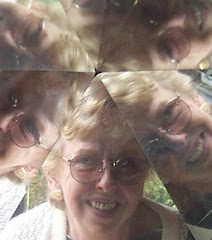 Standing on this spot in Big Hole Montana where the Nez Perce Indians were ambushed by the U.S. Army early one morning before dawn, visitors can still feel the terror and horror of that battle. More than 100 years later, the wind howling through their abandoned camp sounds like the screams and moans of the women, children, and elders who were killed that day.
Standing on this spot in Big Hole Montana where the Nez Perce Indians were ambushed by the U.S. Army early one morning before dawn, visitors can still feel the terror and horror of that battle. More than 100 years later, the wind howling through their abandoned camp sounds like the screams and moans of the women, children, and elders who were killed that day. In spite of the surprise raid, the Nez Perce managed to defeat the troops on this spot. Many lived to fight another day after a long march through a portion of what is now Yellowstone and up through Montana in bitter cold as they faced starvation.
Searching for History in Your RV
One of the best uses we’ve found for our motorhome is exploring historic sites. We’ve all read about the Wild West; places like Tombstone, Virginia City, the Black Hills of South Dakota. We’ve heard about the Oregon Trail and the people who followed it west to new homes and lives. We know about the Boston Tea Party and Paul Revere’s ride through the area warning settlers that the British were coming.
There’s so much history in this country that didn’t have much meaning to me until I started traveling in an RV. We had made plenty of trips across the country on vacations, but mostly we were rushing to visit relatives, then rushing back to wherever my husband was stationed at the time.
It wasn’t until the early ‘90s that we finally found time to meander and talk to people we met. In 1993 or 1994 I was directed to a man to interview in Mountain View, Arkansas for an article I was writing about the area’s music and attractions. That man quickly became a friend and a fountain of information about the Civil War and other interesting stories from the past. You see, when I met him, he was already in his mid-eighties and had known his grandfather, who was born before the Civil War. Suddenly history was alive, and I was hooked.
Next I met an elderly woman who also lived in Northern Arkansas, and did she ever have some stories to tell. I was sent to her to find out about some of my ancestors who had settled that area, but I learned a whole lot more. She was active in politics and served on Clinton’s presidential election committee, even at her advanced age. And she knew a whole lot about history. Now I was really hooked on history.
Now, every trip we make involves checking out historic sites, no matter whether it is famous or a lesser known place. We’ve walked the streets of Tombstone. We’ve visited Moriah Cemetery in Deadwood. We followed the Freedom Trail in Boston and saw where the tea was dumped. We went aboard the U.S.S. Constitution while it was being restored in Boston Harbor. We climbed to the top of Washington’s Memorial in D.C. (no longer allowed—too many people suffered heart attacks climbing the 800 breath-robbing steps). We visited Dealey Plaza in Dallas where President Kennedy was assassinated. These visits gave us a close-up perspective on those events, but a couple of historic sites really moved us.
We visited Northeastern Oregon because my family had settled there in 1878. While there, I became curious about the story of Chief Joseph and his people, the Nez Perce Indians who had called that area home before the land was taken from them by the government. We followed their trail to Big Hole, Montana, where the U.S. Cavalry ambushed them early one morning before dawn and killed numerous women, children, and elders. You see, they had already left their homeland headed for Canada after being forced out when their treaty was voided. The story gets even worse before they finally surrendered and were forbidden to ever return to their beloved homeland.
This was one of the most horrifying stories I’ve ever encountered, but it made me realize that behind every historic event are real people whose lives are affected. I felt similar sadness when I explored the Civil War Battlefield in Vicksburg, Mississippi. Enemies, some of them relatives and former friends of each other, fought face-to-face battles over principles that are difficult to understand now. Traveling through the Battlefield and imagining the hardships they faced, as well as the terror that reigned on the townsfolk, was almost more than I could bear—even after almost 150 years.
That sums up why traveling to the sites where history is made is so educational. It gives an up-close perspective when you can stand on the ground where historic figures stood. You can almost hear the battles. You can almost see the wounded and feel their pain. Your stomach growls in sympathy and you want to cry out when you learn that the townspeople and Rebel soldiers at Vicksburg were reduced to eating shoe leather before the siege on the city finally ended. How did this happen in a civilized country, among civilized people?
Traveling gives you a personal perspective that makes history hard to forget, and makes you realize how lucky you are to be living now. It instructs you to understand that as a civilized country, we must never let issues divide us so deeply again. And that’s what learning history is all about, in the first place. It teaches lessons for the future so the same types of mistakes are never repeated.
If you have an RV and haven’t yet explored some historic sites, think about making that your next RVing adventure. There are sites all across the country, so a long trek shouldn’t be necessary. Simply hop in the RV, turn the key, and drive down the road a piece where you’re sure to find something significant from the past, no matter where you live.


No comments:
Post a Comment